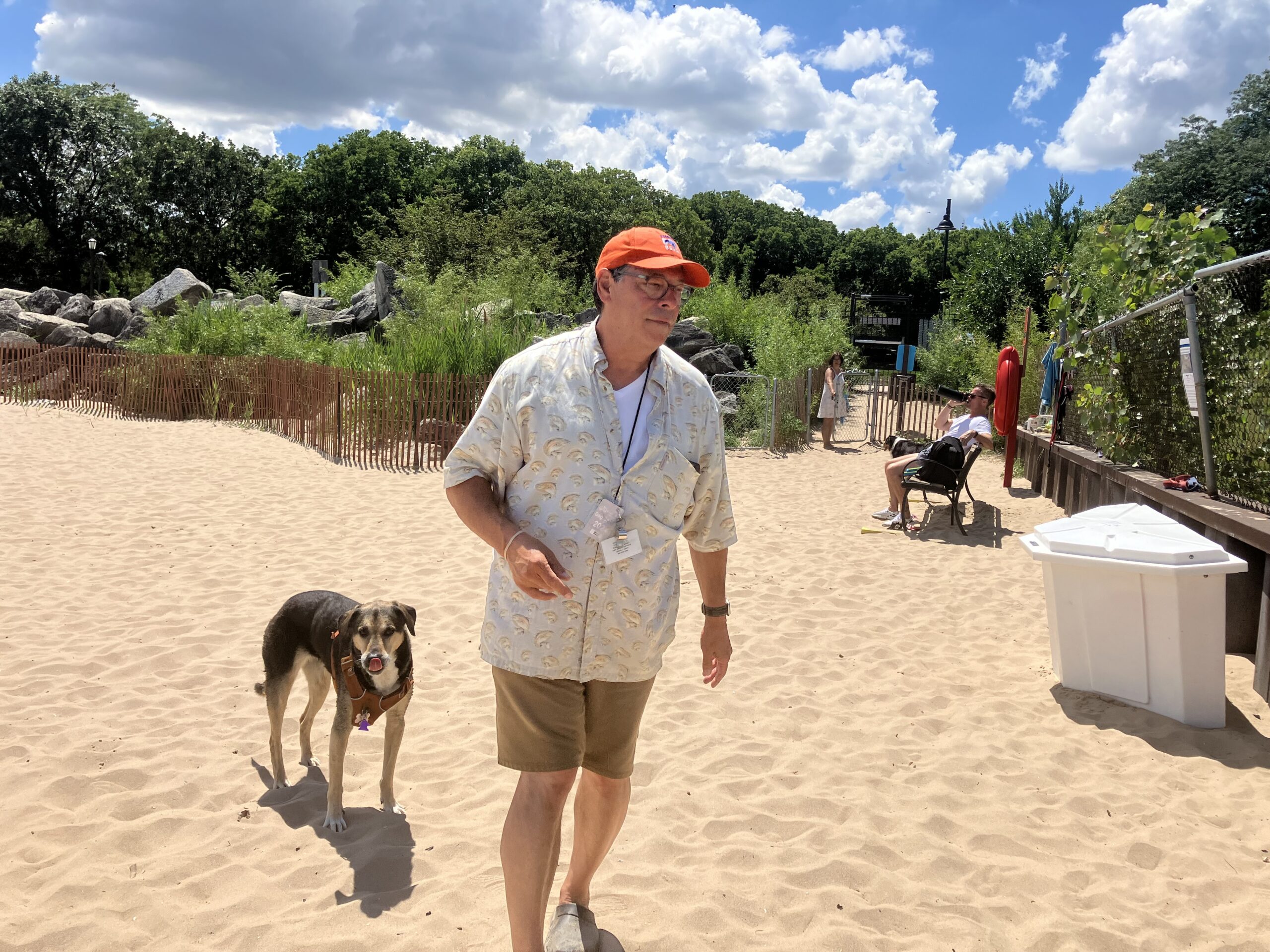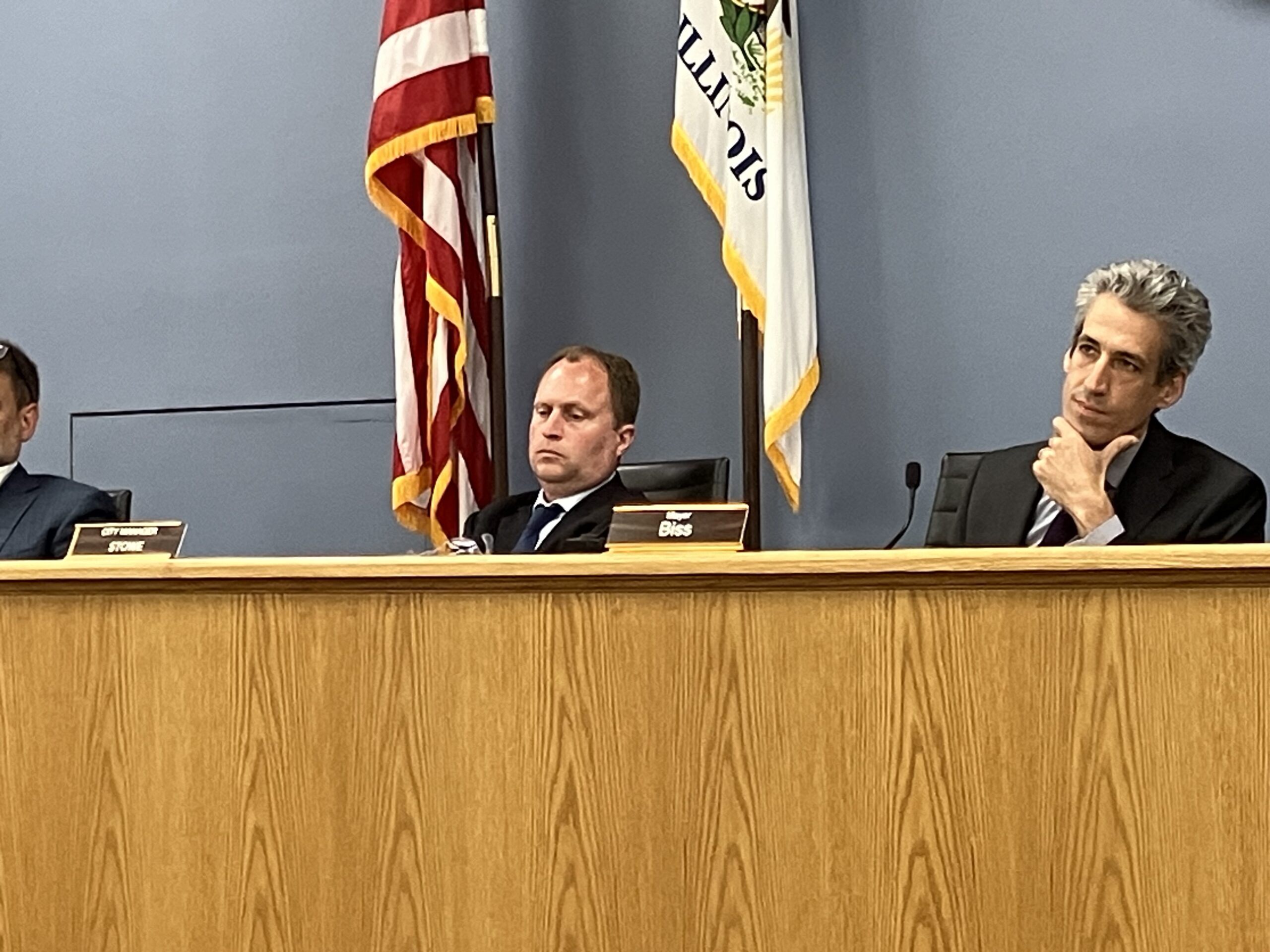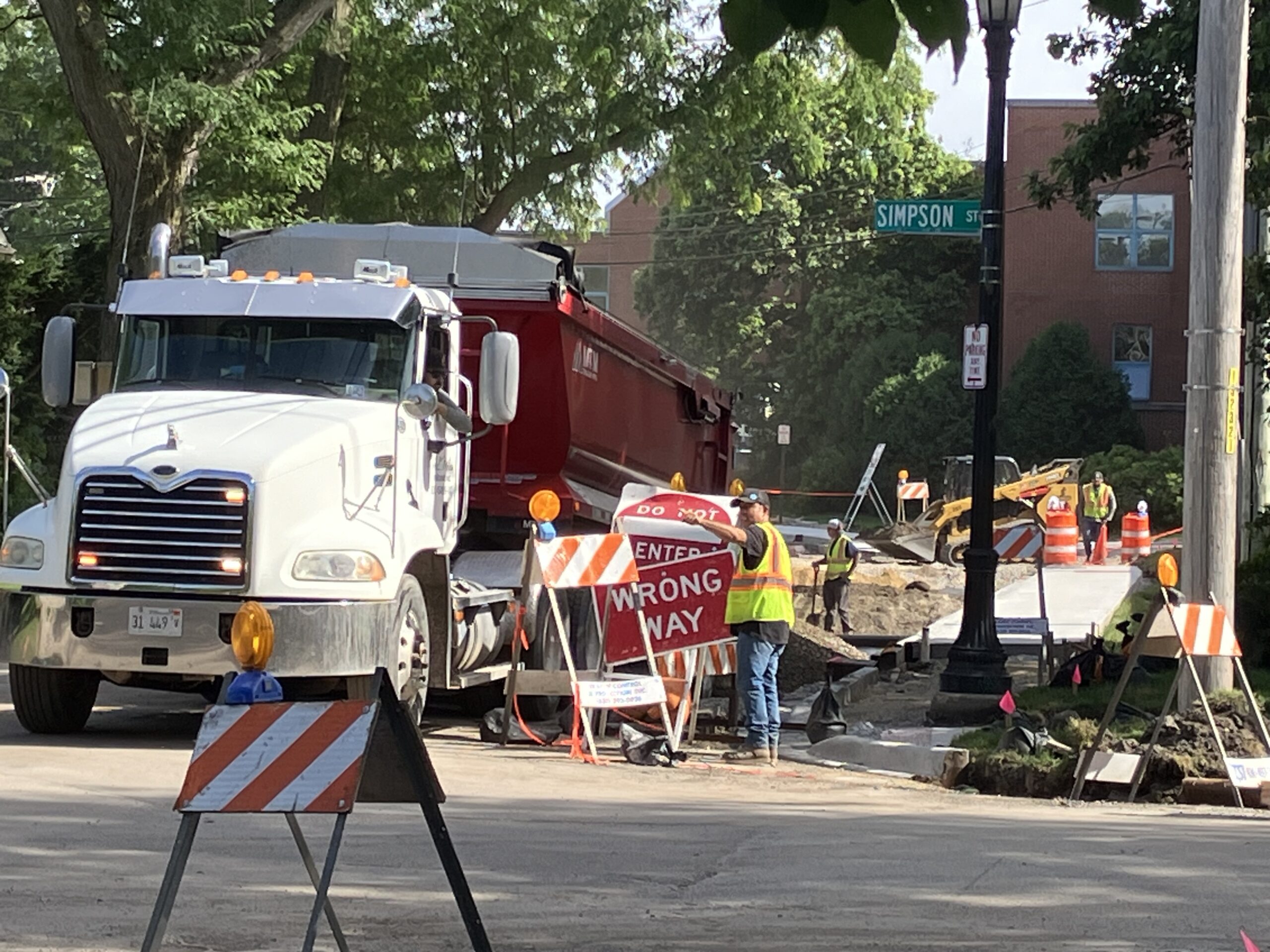By Bob Seidenberg
The City Council on May 8 allocated $3 million in federal American Rescue Plan Act (ARPA) funds to set in motion some of the recommendations of the Evanston Thrives report.
Last May, the city contracted with Philadelphia-based Interface Studio for a $245,000 study to develop a framework that could enhance the quality and mix of retail, food and entertainment offerings throughout the city’s eight business districts.
The consulting firm’s draft executive summary alone ran some 20 pages, suggesting a number of steps the city could take to invigorate the districts as they emerge from COVID-19.
At the May 8 council meeting, Interface representatives presented a chart showing priority actions.
“These are the things that we feel will have a big or catalytic impact if implemented,” said Sarah Kellerman, one of the firm’s point people on the project.
“With a lot of the recommendations, they’re also paired with case studies or examples of how some of these proposed projects and ideas were implemented other places, all working towards the ultimate goal of shifting this scale,” she said.
The report proposes a detailed action plan for business supports, events and programming, tenant attraction, and placemaking, with the city playing a stronger role on how the various business districts look and feel.
In that direction, the report suggests the city partner with the university to produce one event or programming series each year.
The report also calls for the city to engage the university in increasing student awareness of downtown and the use of downtown spaces for events and activities.
Beyond the university, the report called for more coordination among districts to keep Evanston lively throughout the year, and emphasizing Fountain Square and the lakefront at Church Street as “premier event locations.”
At the meeting, Council Member Jonathan Nieuwsma (4th Ward), asked Kellerman how long it would take the city to reach the goals outlined in the report.
“The plan horizon is 10 years,” she responded. “There are some big goals, and I’ll admit a lot of these things are going to require organizational coordination and some institutional and policy changes that it’s hard to put a timeline on. But the plan horizon was 10 years and I think the the majority of implementation incremental steps were focused on about five.”
The report also calls for the city to engage the university in increasing student awareness of downtown and the use of downtown spaces for events and activities.
Beyond the university, the report called for more coordination among districts to keep Evanston lively throughout the year, and emphasizing Fountain Square and the lakefront at Church Street as “premier event locations.”
At the meeting, Council Member Jonathan Nieuwsma (4th Ward), asked Kellerman how long it would take the city to reach the goals outlined in the report.
“The plan horizon is 10 years,” she responded. “There are some big goals, and I’ll admit a lot of these things are going to require organizational coordination and some institutional and policy changes that it’s hard to put a timeline on. But the plan horizon was 10 years and I think the the majority of implementation incremental steps were focused on about five.”
Their approval also included authorizing the city manager to hire an additional employee in the Economic Development Division.
Health care workforce development
Council members also authorized ARPA allocations of $200,000 for a proposed ASPIRE Evanston Community Health Care Workforce Development program. The funding for ASPIRE would match a pair of $200,000 investments from NorthShore University HealthSystem and the Finnegan Foundation.
Currently, “there are approximately 500 vacant job openings in the NorthShore system alone,” Nathan Norman, the city’s workforce development coordinator, noted in a memo.
Currently, the City of Evanston’s Workforce Development Division manages the ASPIRE program in collaboration with the Mayor’s Employment Advisory Council and other community partners and stakeholders.
“The total $600,000 funding will help expand workforce training and expose more Evanston residents, particularly young adults 18-30, who are unemployed, underemployed or seeking to upscale in the workforce, to robust career explorations at NorthShore Health System,” Norman said.
Their approval also included authorizing the city manager to hire an additional employee in the Economic Development Division.
ASPIRE is designed to support the exploration, launch, and acceleration of healthcare careers (including clinical, technology, administrative, and hospitality roles),” he said, “by providing participants with training, internships, certifications, tuition reimbursement and credential obtainment.”
ARPA money winding down
Council members also approved granting $550,000 to Whole & Free Foods to establish a commercial/manufacturing kitchen in a warehouse it plans to acquire at 626 Hartrey Ave.
In the Whole & Free Foods request, the company’s owner told the city’s Economic Development Committee last year that she is hoping to convert the warehouse space to produce Every Body Eats allergen-free snack foods.
The company is projecting it will create more than 50 jobs at the new facility and is committed to prioritizing Evanston residents for the openings, Paul Zalmezak, the city’s economic development manager, said at a previous Economic Development Committee meeting.
The city was notified in March 2021 that it would be receiving roughly $43.1 million in federal ARPA funds, designed to help cities rebuild after COVID-19.
As of April 24, Evanston has approximately $5.739 million in unallocated ARPA funds, Zalmezak reported at the meeting. Meanwhile, programs and projects still seeking ARPA support from the city total nearly $5 million.




